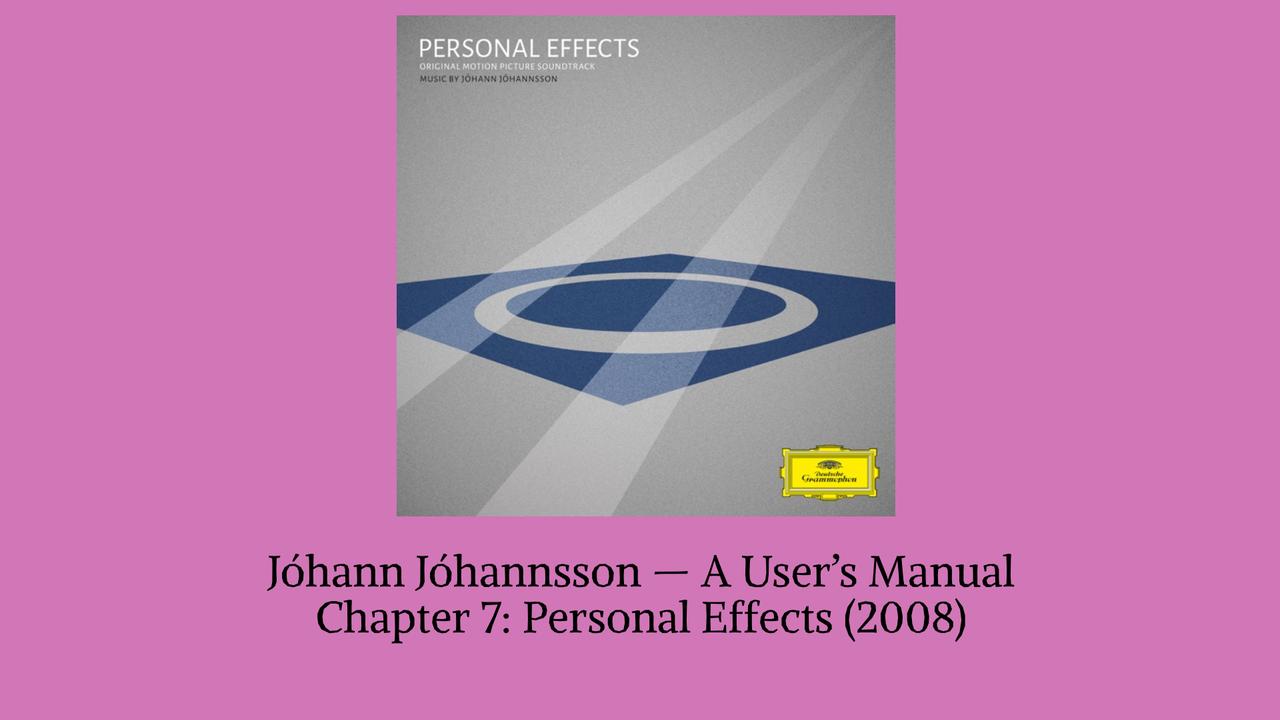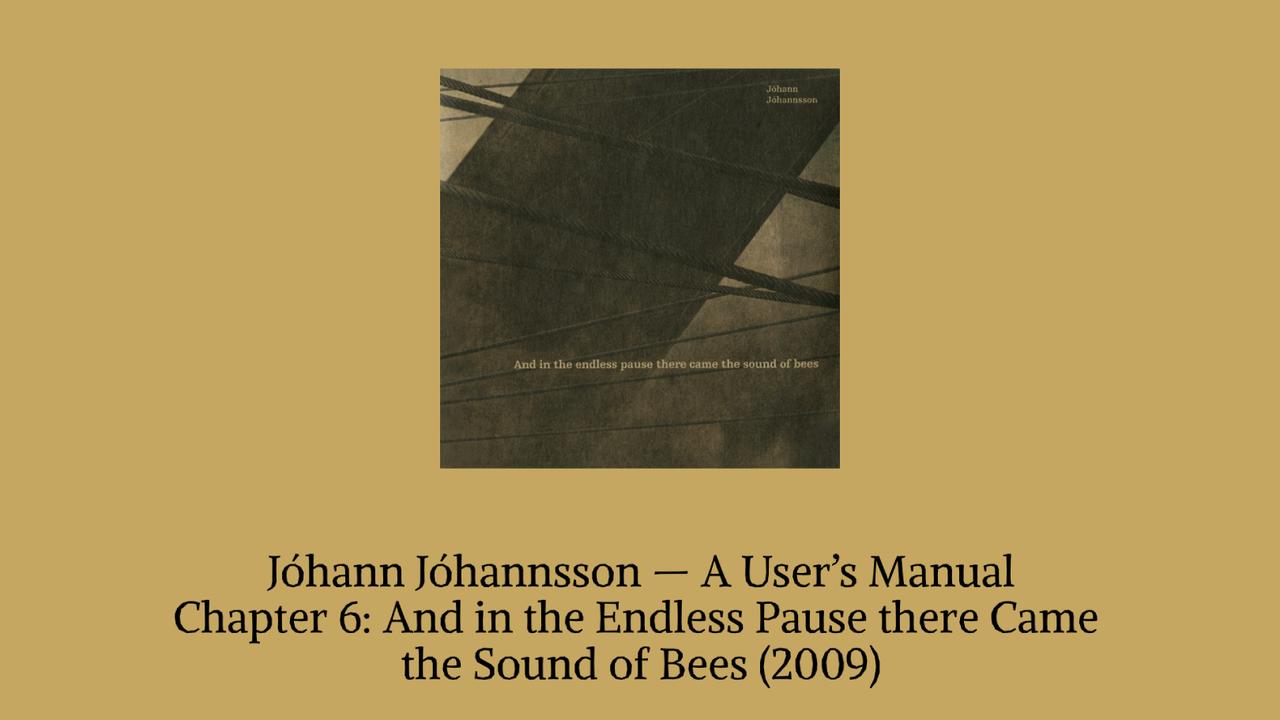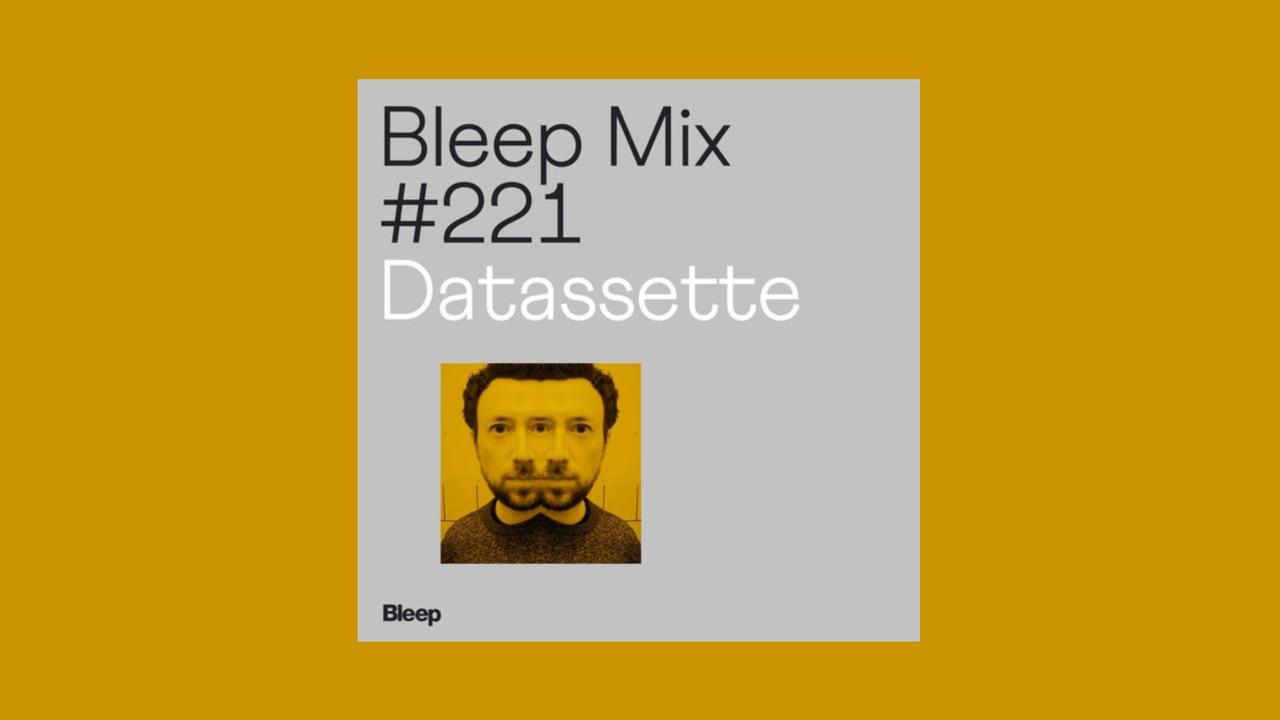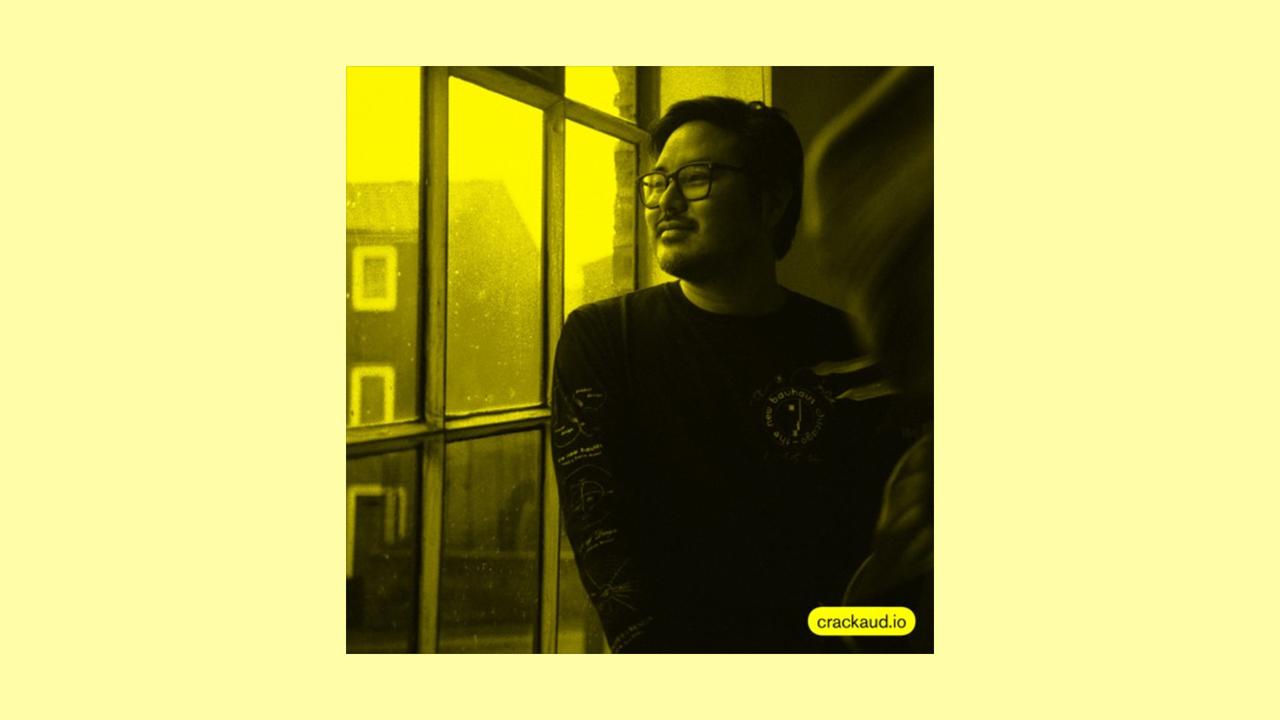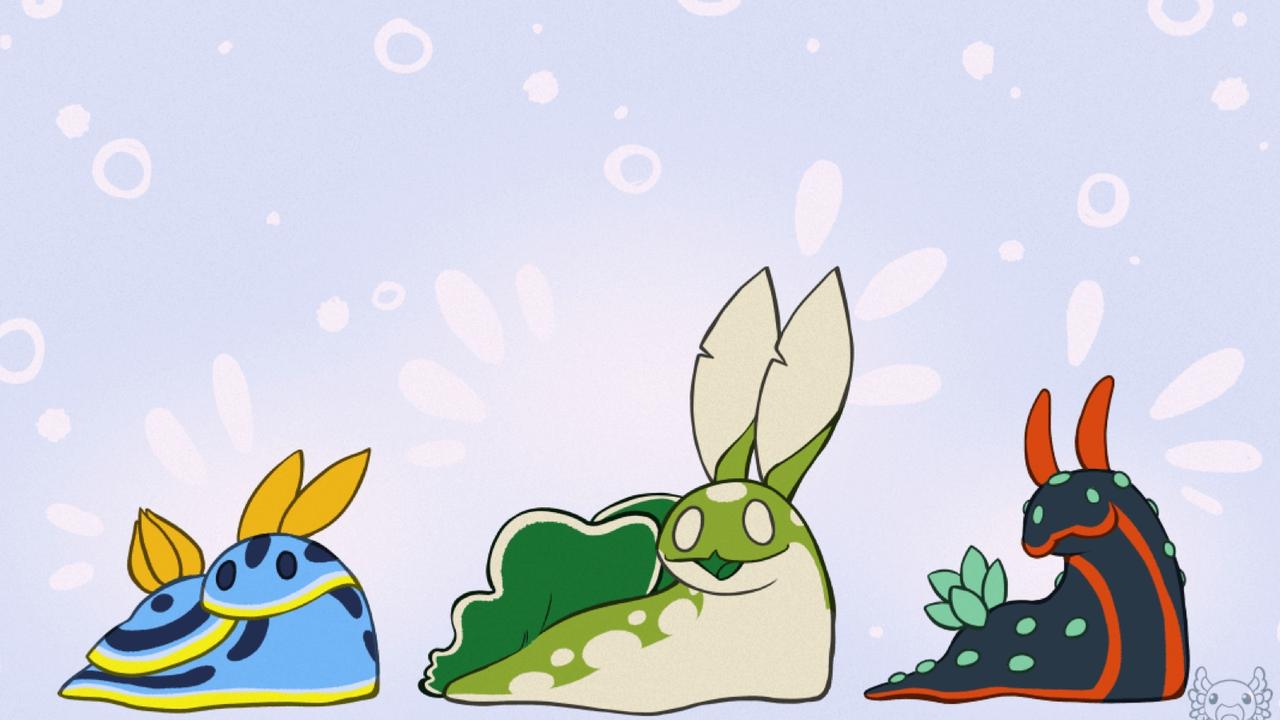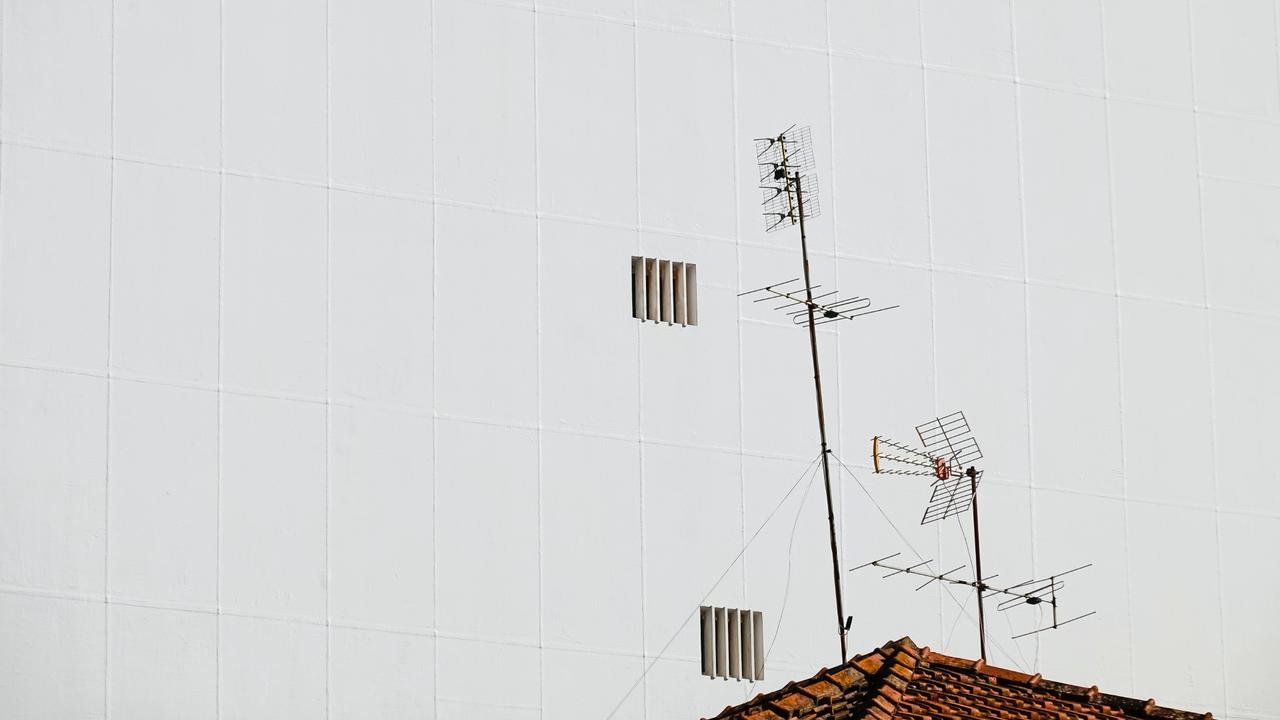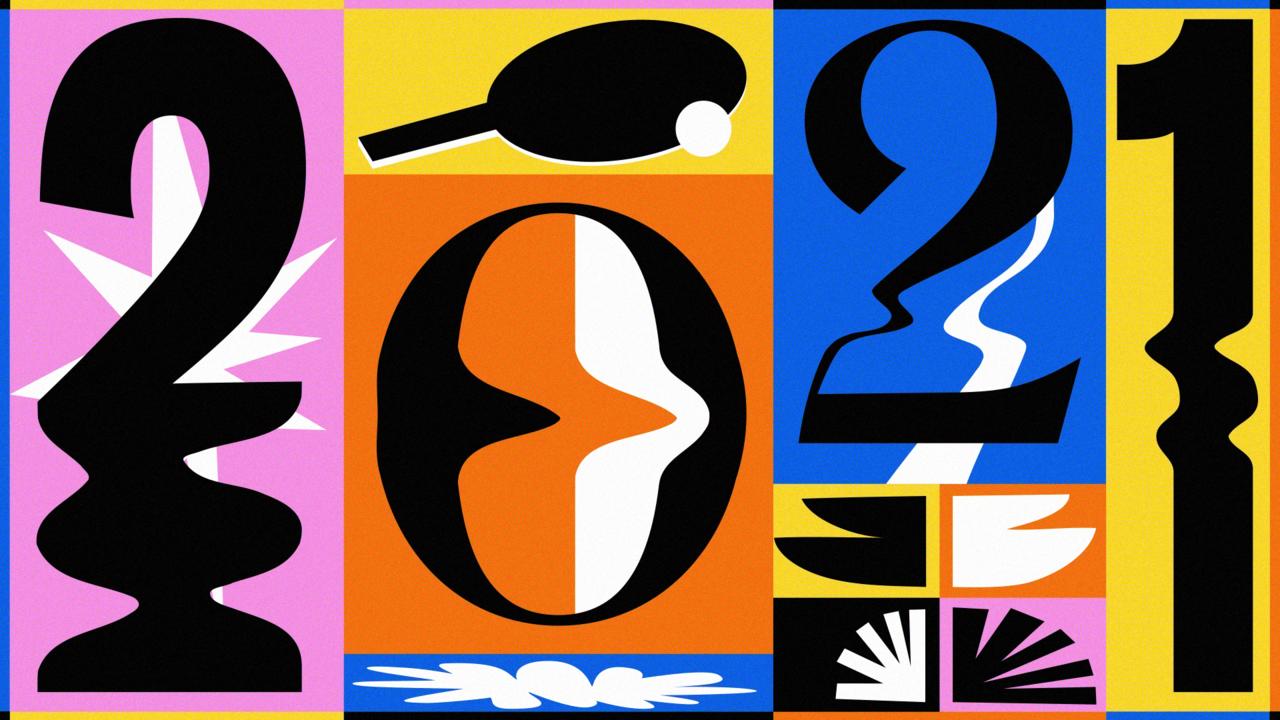Jóhann Jóhannsson – A User’s ManualChapter 8 – The Miners’ Hymns (2011) – English
14.2.2022 • Sounds – Conversation: Kristoffer Cornils, Thaddeus Herrmann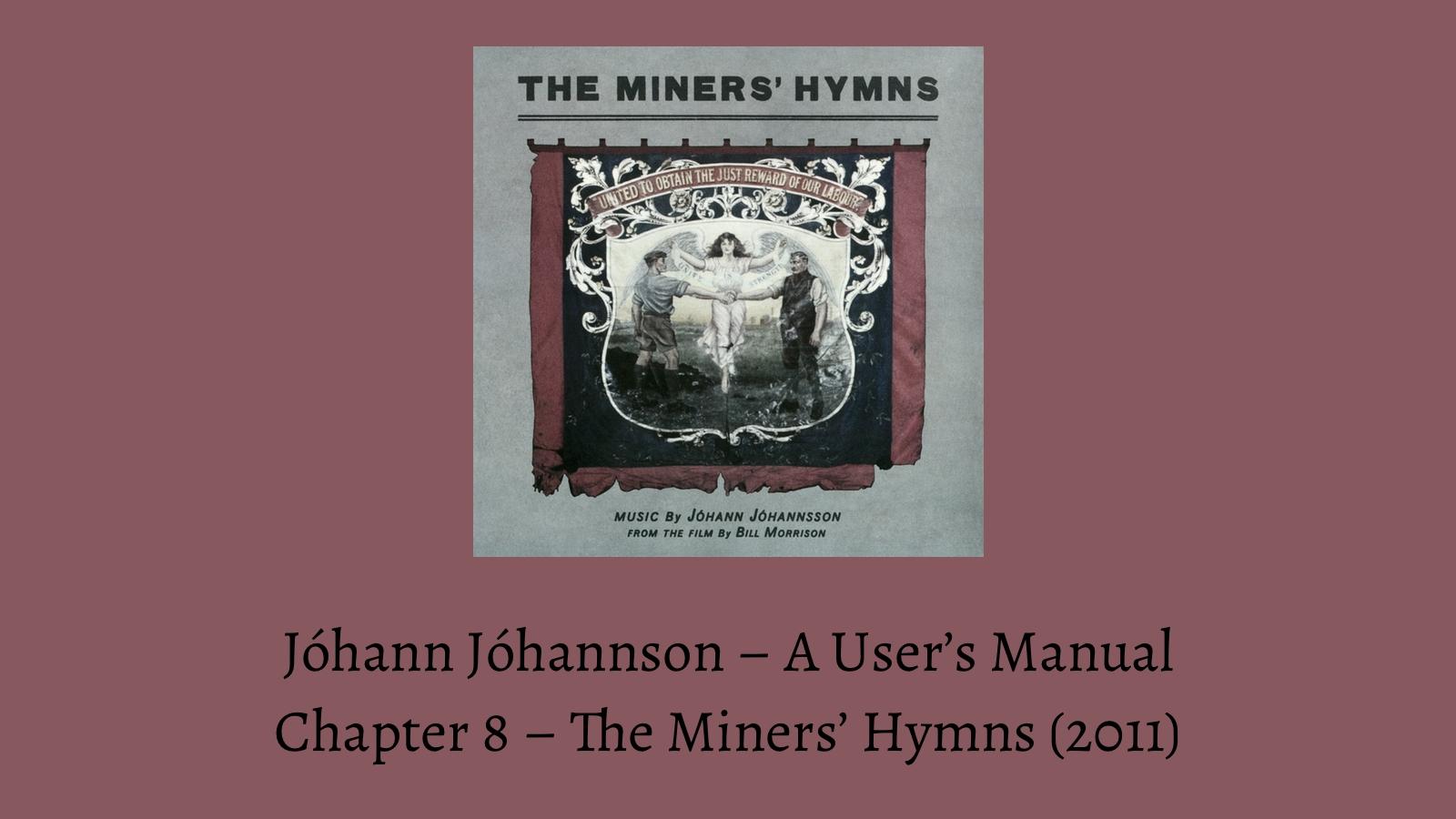
Jóhann Jóhannsson has released well over 20 albums in his career. And who really knows how many sound documents still lie in the drawer that could see the light of day posthumously. Once a month, Kristoffer Cornils and Thaddeus Herrmann review the composer's work—chronologically, album by album. The eighth episode is about "The Miners' Hymns" from 2011, the soundtrack to Bill Morrison's film of the same name.
Deutsche Version? Hier klicken.
"The Miners' Hymns" is a film without words, telling the story of coal mining in northern England solely through images and music. Director Morrison uses similar techniques to those that helped him achieve his breakthrough roughly a decade earlier with "Decasia" and collages and thus re-contextualises archival footage of miners. No commentary connects the dots between those historical recordings; the narrative is constructed exclusively through juxtapositions of different visual material—scenes from the miners' work and home lives meet recordings of violent confrontations with the police—from the most diverse eras.
However, the project was conceived in close collaboration with Jóhann Jóhannsson and premiered not at a documentary film festival, but at the Durham International Brass Festival in 2010 as a concert and screening in Durham Cathedral, which is also featured in some of the film's scenes. The regional context is also mirrored in the instrumentation: in addition to an organ, percussion and electronics, the six pieces were written primarily for 16 brass instruments, themselves part of the cultural traditions surrounding mining in the UK. As an album, "The Miners' Hymns" consists of recordings made also in Durham Cathedral three months after the first performances on 15 and 16 July 2010.
The film and soundtrack were performed live again and again in the following years, especially in 2014, the 30th anniversary of the UK miners' strike, which was violently suppressed by Margaret Thatcher.
Kristoffer: It's been a long time since we sat together at the same table to talk about Jóhann Jóhannsson. Since last September, to be precise. Life got in the way or we weren't able to be in the same place at the same time. You know, the usual. But I've also been dreading this moment a bit, perhaps even deliberately putting it off. Because even an album as enormously important to me as "Virðulegu Forsetar" I can still talk about without any problems. And a monumental work like "Fordlandia" I analyse to death with ease. But "The Miners' Hymns"? That's where things get complicated.
Let's start with the facts: it is the first album by Jóhann Jóhannsson that I really noticed consciously and thus served as a gateway into his world. By the way, you could have unlocked that gate, Thaddi: I do remember reading about the album in de:bug back then, and for me your enthusiasm was always highly infectious. So much in fact that most of the time I didn't even have to listen to the records you were talking about! And that is true until this day.
But back to "The Miners' Hymns" and especially "The Cause of Labour Is the Hope of the World": this is music that saved my life. Maybe not in a literal sense, but certainly in one ... no, nonsense: every possible figurative sense. And you know what? I still haven't seen the film. I'd love to, but I also don't need to. Because other things run through my head when listening to the album. What exactly is difficult to determine. But maybe that's what makes this album—that's how I listen to it, not as a soundtrack—so all-encompassing, larger-than-life, greater-than-life in a sense. I can't grasp it and yet it is absolutely vital to me; a bit like the air I breathe. I am being a little pathetic here, I know, but to tell you the truth: I cannot help it. But before I go on a tangent, please say something, something concrete. You like this album, too, don't you?
Thaddi: Thanks so much for the intro! I'll try to approach your position step by step. "The Miners' Hymns" is the album by Jóhann that I hardly ever listen to. Why? I don't know. Because whenever I do listen to it, the music pulls me in like a deadly maelstrom hailing from the Bermuda Triangle. This record is not my Jóhannsson-saving moment, however. We'll get to mine later in this series. But of course the topic of the album touches me. I have a great love for Great Britain; a love that has shifted more and more towards the north over the years. The North, for me, meant pretty much exclusively Manchester at the time. I am convinced that the city fits the topos of "northern England" well, even if, as far as I know, coal was never really mined there. But of course the city—or its metropolitan area—sings the song of Manchester capitalism and plays a decisive role in the transformation of the country, which ultimately also influenced and conditioned coal mining. If I remember correctly, the miners' struggle against Thatcher came first to my attention in a musical way through Test Dept's "Pax Britannica", which symbolised a direct confrontation with Thatcher's regime.
When I travelled to Manchester for the first time, I experienced a city in ruins. Everything was finished there. And in cities like Newcastle or Sunderland—on the east coast—it may have been even worse. The decline of industry, which once promised and delivered prosperity, was in full effect, hopelessness reigned. The city centres were soon rebuilt with EU money, made pretty. I once spent a weekend in Newcastle, and it was fantastic. I stayed at the Hilton, however, and didn't have to worry about anything thanks to the British Council. My point is: I understand the disparity between grown tradition—mining—, the necessary economic restructuring, and the resulting social consequences, which of course have not been consistently addressed. And in precisely this irritation, in which my sympathy naturally lies with the miners, I have to be honest with myself: nope, sorry. That job is just yesterday's news. I can state this neutrally. The trailer of the film "The Miners' Hymns" makes me think, of course, at least for a short moment. I'm sorry and hurt about it all, but I don't see any other option. And then Jóhann comes along with his album. I have never seen the complete film either, but the trailer gives a good impression.
Now then, shall we talk about the actual music?
When I think of "The Miners' Hymns", it is more of a vague feeling or a colour prism of possible associations.
Kristoffer: Oh, yes! The music is almost crushed by the context, of course, but it still stands on very solid legs itself. I remember a review of the album stating that this music had nothing at all to do with the brass ensembles, whose tradition is at least somewhat of a starting point here. I find that interesting, because it would never have occurred to me that Jóhannsson was consciously reconstructing something here, or at least trying to do that. Although, on the other hand, there are of course quite obvious cross-connections, especially thanks to the instrumentation. Let's put it this way: the music doesn't march, it surges up and down. Mostly very imperceptibly. In fact, I find it hard to really notice it. Apart from "The Cause of Labour Is the Hope of the World", I can't recall any of these pieces before my inner ear. When I think of "The Miners' Hymns", what the thought evokes is more of a vague feeling or a colour prism of possible associations. But at least I dare to position the album in his discography as a kind of relay, a bridge between the powerful, impressionistic drones of "Virðulegu Forsetar" and the very concrete, no less powerful drones of his soundtrack works like "Sicario" or even "Arrival".
Kristoffer: Oh, yes! The music is almost crushed by the context, of course, but it still stands on very solid legs itself. I remember a review of the album stating that this music had nothing at all to do with the brass ensembles, whose tradition is at least somewhat of a starting point here. I find that interesting, because it would never have occurred to me that Jóhannsson was consciously reconstructing something here, or at least trying to do that. Although, on the other hand, there are of course quite obvious cross-connections, especially thanks to the instrumentation. Let's put it this way: the music doesn't march, it surges up and down. Mostly very imperceptibly. In fact, I find it hard to really notice it. Apart from "The Cause of Labour Is the Hope of the World", I can't recall any of these pieces before my inner ear. When I think of "The Miners' Hymns", what the thought evokes is more of a vague feeling or a colour prism of possible associations. But at least I dare to position the album in his discography as a kind of relay, a bridge between the powerful, impressionistic drones of "Virðulegu Forsetar" and the very concrete, no less powerful drones of his soundtrack works like "Sicario" or even "Arrival".
Thaddi: The fact that you can't recall the music is almost a bit funny, my beloved Professor Dr. Dr. Drone! However: I had not yet made the connection between the traditions of the mining community and Jóhannsson's interpretation nor had I perceived it as important. Let us stay, though, with this thought for a bit and the resulting suspicion that this could have been the composer's point. In this particular scenario, the album is probably hardly more than a noisy reverb trail of history. But honestly: I would have expected nothing else from Jóhannsson. Cover versions are not his thing.
Kristoffer: True! At the same time, it is interesting how he works with the slogans of the protesters—"An Injury to One is the Concern of All", "Industrial and Provident, We Unite to Assist Each Other"—these are statements being made or at least quoted here. There is also Christian rhetoric, "They Being Dead Yet Speaketh" and so on. This results in an interesting mixture in the context of the music, which, with the exception of the last piece, is not at all confrontative. It just floats strangely through the shadows, like a dark echo of past times, vague memories.
Perhaps we can classify this record as an unsuspected Hauntology album since I am first and foremost a professor of spectrology. And maybe that makes it possible to understand this music: Jóhannsson didn't want to deliver cover versions that would just manifest the past in the present once more, but rather tried to make it possible to experience what you felt on your travels in the north of England. the ghosts of past eras, of lost battles. "They Being Dead Yet Speaketh Of Hope". Because that is—I love this ambiguity!—the "Cause" of "Labour", i.e. the reason but also the agenda of the Labour Party or indeed of all labour itself. Semantically, this is incredibly complex and delivers an impressive twist to the album, especially at the end. You realise: I really only want to talk about this one piece.
Thatcher killed pretty much everything that could be killed.
Thaddi: And we will do exactly that in just a minute. But first of all: I agree with what you just described. Unfortunately, the hopeful outlook was never realised. On the contrary. Thatcher killed pretty much everything that could be killed. In retrospect, I wouldn't have been surprised if she had advocated the building of a wall and declared everything above Birmingham an autonomous zone outside her jurisdiction. Just to get rid of the "poor" North. Realistically speaking, back then the situation in the North was already as grim as John Lanchester describes it in his novel "The Wall" under completely different auspices. Barren land, exploited mines, people with accents you can't understand in London. So the eternally dark looming, that—except for the last piece, we'll get there, I promise—fits musically exactly with what Tory politics wrought. Fun fact: it was only at the end of last year that the last rail bus in the north of England was taken out of service, which was really just a bus mounted on a chassis. That kind of stuff is completely unthinkable in the south of the country. The disparity between the North and the South is still noticeable today.
Kristoffer: Agreed. But I can't help but see in it—or rather, in the artistic reappraisal of the whole thing—a potential that is both topical and groundbreaking. Because of course both the music and the film are decidedly concerned with the past and you also said quite rightly that mining itself should really no longer be the status quo. I once attracted a lot of anger when I pointed out in a review of the TV show "Chernobyl"—why isn't Hildur Guðnadóttir on this album?—that it was somewhat cynical in its symbolism that the coal miners, of all people, were rushing to save the day. So nostalgia for this is also out of place here. But I digress.
Or maybe not. For I refer to the discourse of hauntology because the ghosts of the past that are conjured up are not mere copies of past times. Rather, like another spectre, born in 1848, they are supposed to set a new course for the future that is informed by past failures and unfulfilled promises. Let us also remember the political situation in Britain and the world when "The Miners' Hymns" was released: the London Riots! Occupy ("We Are the 99%" would also have been a possible title for one of these pieces) spread through the world, the Arab Spring, etc. All of this happened three years after a major global financial crisis that would never have been possible without Thatcherism.
This album is reminding us in an extremely exciting context of past common endeavours and highly topical moments of solidarity.
Unfortunately, the great upheaval did not come. But at least this album is reminding us in an extremely exciting context of past common endeavours and highly topical moments of solidarity. The miners' strike of 1984 is extremely inspiring because many different groups joined it, like the LGBTQI* movement. Starting from a simple insight ("An Injury to One is the Concern of All"), alliances were formed between groups that were primarily fighting for social recognition and the traditional workers' movement. To make this tangible as a film with the appropriate music to go along with it while in London people were once again taking to the streets to protest against neoliberalism and austerity, or at least to give free rein to their frustration—that's really something, isn't it?
Thaddi: What a great arc! Very well solved - and thus once again more current than the riots of 2011. Though I would not overestimate the solidarity of different social groups back then, even if this'd feel real good. To unpack a real cliché: I don't think foreman Pete would have spontaneously befriended the hidden queer Marcy at The Drunken Duck pub. But it doesn't matter. If the past two years have taught me anything, it's that for the rest of my life I'll appreciate utopias much more than dystopias. But now it's me who digresses.
Kristoffer: First and foremost, I just threw a neat lump of only loosely sorted thoughts at you! However, these are exactly the kind of associations that this album triggers in me as it runs its course. I don't believe at all in the inherently political potential of any form of (pop) music, but music does of course reflect and comment on certain historical or contemporary processes. And "The Miners' Hymns" succeeds—perhaps this was not one hundred percent intentional, Jóhannsson was no clairvoyant after all—in integrating both into a single work. Despite the graininess of the movie that it was written for, the past is dealt with in a highly topical way in it. He did this, however, without really resorting to sloganeering, because with the exception of the track titles, there's nothing placard-political about this record. Together with the film, it stands very much on its own and is at the same time open towards the past, the present and the future. And maybe that's what makes it so difficult for me to grasp it, because I can always listen to it in other ways. But for you it's more of a dark soundtrack, isn't it?
Thaddi: Not at all. However, we already have opened Pandora's box of cross-generational history. In this sense—right here, right now—I am rather dismayed by my new interpretation of the album, which is reigned by an icy cold. I am a bit scared, to be honest. To tell you the truth, I am not ready to enter that tunnel yet. For me, the album is a dark monster rolling over a country or a planet where nothing counts anymore.
Kristoffer: But how on earth can you listen to the last track and not think that everything will be alright afterwards? Even I feel that way. ME!
Thaddi: Alright then, let's finally hear that one. You're absolutely right, of course. But that's a trick that Jóhannsson does really well. In "And in the Endless Pause there Came the Sound of Bees" it is exactly the same, except for the fact that the dark part is parked in the middle of the composition.
Kristoffer: Yes, but here it comes as the big, bright finale. It's an extraordinary narrative sleight of hand, but it works incredibly well. The whole album is dominated by a certain weightlessness, almost a lethargy, which is wonderfully resolved in triumphant gestures towards the end. Though resolution is perhaps the wrong word: actually, everything just repeats itself as a crescendo builds up and then ebbs away again. This speaks at the same time of the failure and beauty of attempts at overthrowing the current order, as it underlines the necessity of revolutionising the status quo over and over again. And of course: there is no real happy ending even with this piece. But it offers an outlook, a possibility, the possibility of a future. And I will be able to cling to that for the rest of my life.
